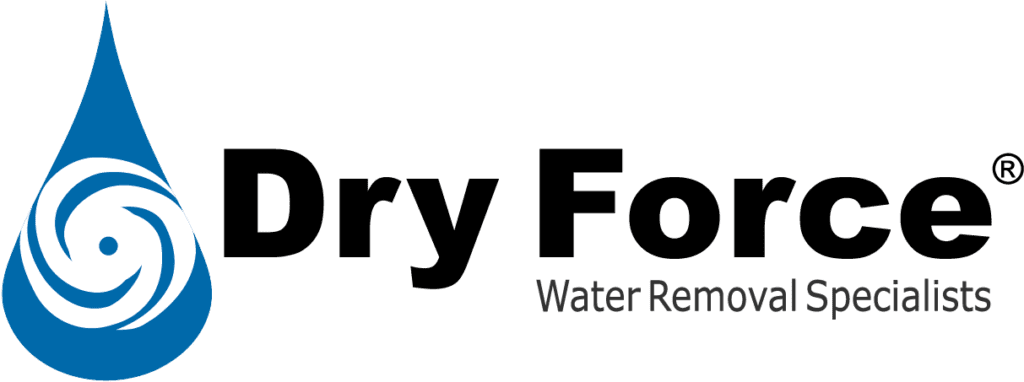July 25th, 2024
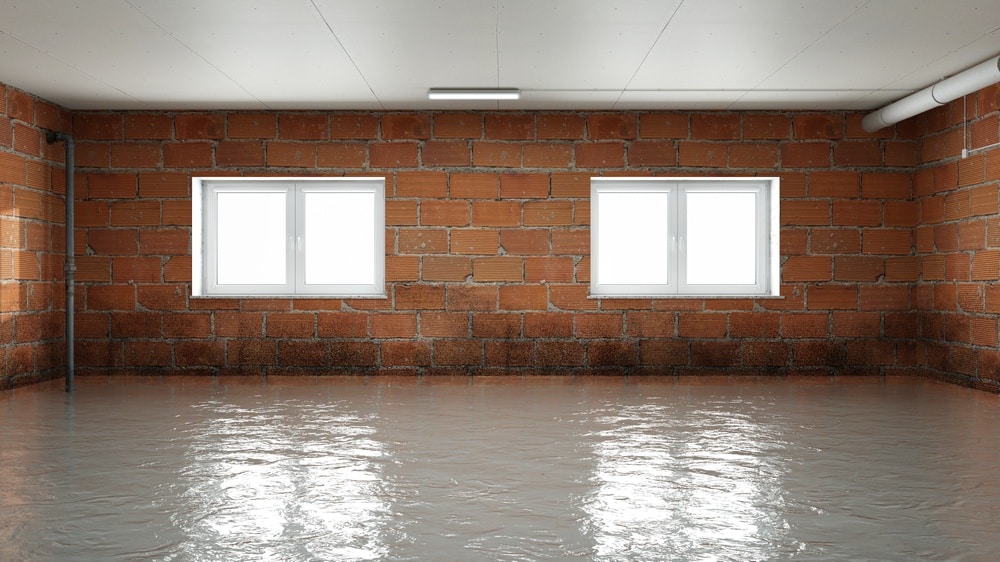
A flooded basement is a frustrating problem on its own. What can make an awful situation worse is having your insurance claim denied when trying to handle this overwhelming home disaster.
To plan a course of action to get your home back to normal quickly, you’ll need to understand exactly why your insurance claim was denied. In this unfortunate case, there are steps that you can take.
With over 20 years of experience under our belts, the team at Dry Force is equipped to share the knowledge you’ll need to understand the insurance claims process and get your home back in order.
Table of Contents
Common Reasons for Basement Flooding Insurance Claim Denials
So your insurance claim has been denied. Don’t worry. This isn’t the end of the road. To take the correct steps toward fixing your problem, you’ll need to understand why your claim was denied. Here are some common reasons why insurance companies will deny a basement flooding claim:
- Lack of Maintenance: Insurance providers may deny a flooded basement claim in the case that home or business owners fail to take preventative measures to mitigate damage. If you don’t regularly have your basement inspected for problems or if you weren’t proactive about moving furniture, turning off water valves, or taking other precautionary measures to lessen the damage caused by flooding, your insurance company may deny your claim.
- Policy Exclusions: Insurance policies come with terms and conditions attached to them. Some water damage incidents may not be included in your policy. Some examples of uncovered incidents may include flooding from rivers or coastal waters, intentional acts of vandalism, or issues caused by pre-existing damage. It’s important to read the fine print of your policy to ensure that your plan doesn’t have these exclusions.
- Late Reporting: As soon as you notice damage, you should file a claim with your insurance company. Water damage insurance claims must be filed within a specific time frame as designated by your insurance company. If you fail to report within those set dates, your claim will likely be denied.
- Insufficient Documentation: If you fail to provide sufficient documentation related to your claim, it may be denied. Insurance agents rely on evidence to assess your claim. This includes photographs, videos, and even repair estimates. If you take a look at your claim and notice that some of these elements are missing, that may be the reason your claim was denied.
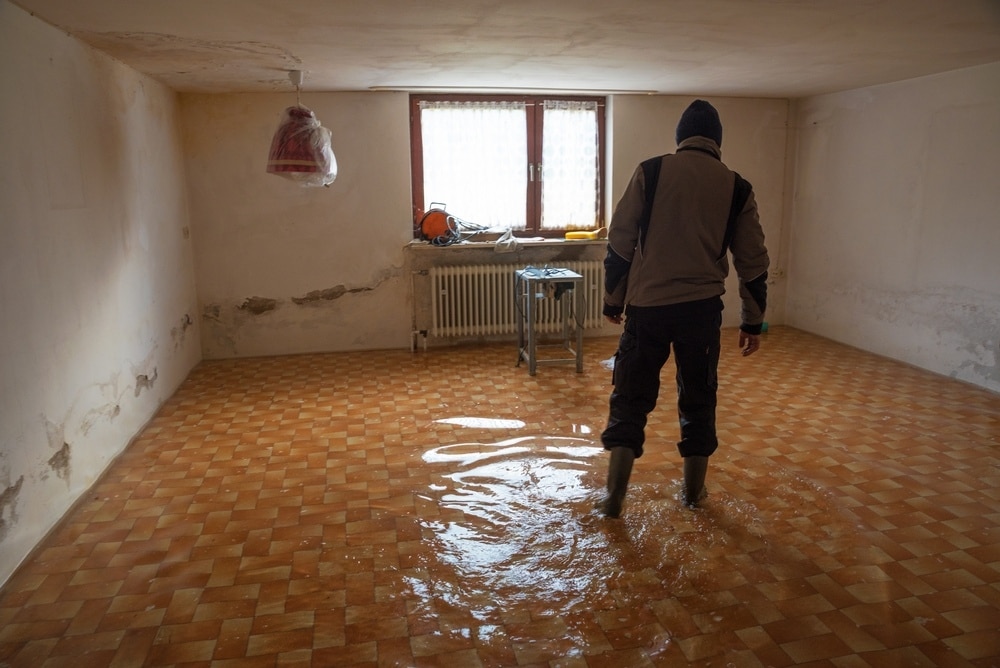
How to File an Effective Insurance Claim for Basement Flooding
Time is of the essence when filing an insurance claim, but you’ll also want to do it correctly to avoid the headache of a claim denial. Here are the proper steps to take to file a successful claim:
- File Your Flood Insurance Claim: As soon as flooding strikes your basement, you should get to work on filing your claim. Many states require that claims be filed within a specific time frame and if your claim is late, it won’t be considered. Additionally, before you begin the process of filing your claim, be sure to read the fine print of your policy to make sure your basement and/or the type of damage incurred are included in your policy.
- Prepare For an Inspection by Your Insurance Company: To verify damage to your basement, your insurance provider will schedule an inspection. During this inspection, an insurance agent will take photos and videos of the damage so that the claims adjuster can assess what compensation you are entitled to. Do not remove or attempt to clean up any of the damaged items or areas in your home before the inspection. Leave it as-is so the inspector can capture an accurate picture of the flooding.
- Work With Your Insurance Claims Adjuster: The insurance claims adjuster’s visit is a time for you to ask questions and plead your case with the insurance company. Before this meeting, be sure to review your policy so you know what is covered and what is not. The adjuster will provide an estimate of the total cost of repairs. At this time, you should bring up any concerns you have and discuss them with the adjuster. After this meeting, you should have a clear understanding of the next steps in the claims process and what documentation will be required of you.
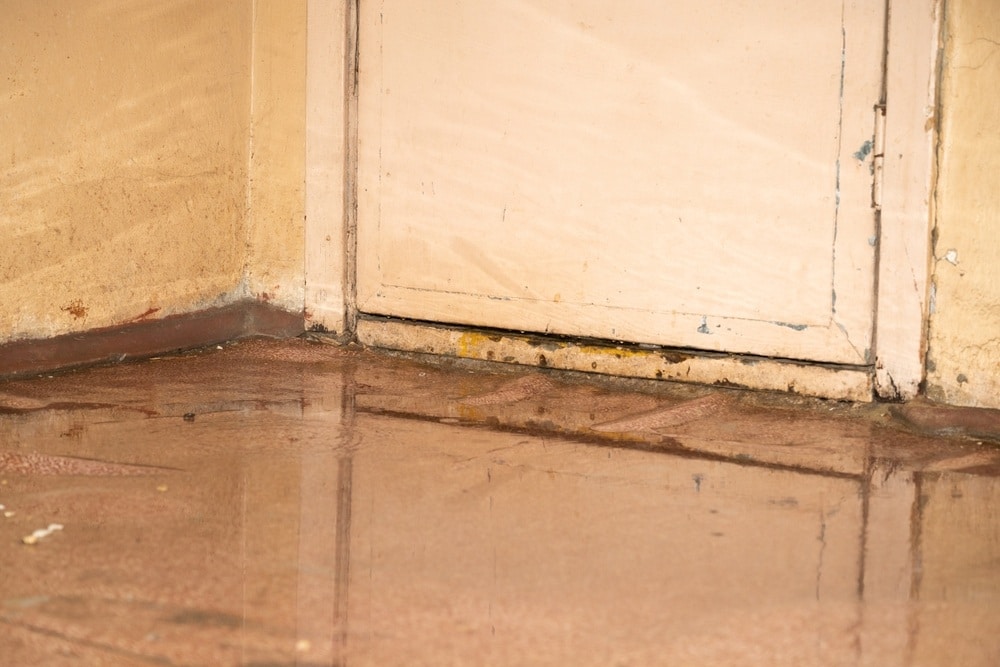
What Will Insurance Cover When My Basement Floods?
Your homeowner’s insurance may cover damage to your flooded basement depending on your policy. Typically homeowner’s insurance covers:
| Burst Pipes | Plumbing Appliance Overflow |
| When a pipe bursts, your insurance may cover the cost of damage according to your coverage limit. | If an appliance in your home unexpectedly overflows, that also may be covered by your insurance policy. |
Renter’s insurance usually does not cover basement flooding, but that depends on your policy. This brings us to flood insurance. Flood insurance is a good supplement to your renter’s insurance policy or homeowners insurance policy because it offers more targeted coverage for flooding.
Like any other type of insurance the specifics will vary depending on your policy, but generally flood insurance covers:
- Electrical and plumbing systems
- Furnaces and water heaters
- Appliances like refrigerators, kitchen stoves, and built-in appliances like dishwashers
- Permanently-installed carpeting
- Permanently installed cabinets and paneling
- Window blinds
- Foundation walls, anchorage systems, and staircases
- Detached garages
- Fuel tanks, well water tanks and pumps, and solar energy systems
- Personal belongings
- Washer and dryer
- Valuable items such as expensive clothing or fine art
- Basement flooding
Steps to Take After Your Basement Flooding Insurance Claim is Denied
Unfortunately, sometimes insurance claims related to flooding are denied. However, this isn’t the end of the line.

There are steps you can take to appeal your claim denial and get the coverage you need. Here’s what you need to do after your claim is denied:
| Review and Understand Your Policy | Gather Additional Evidence |
| If your claim was denied, chances are you didn’t have coverage in the first place. After receiving a claim denial letter, be sure to thoroughly review your policy to make sure that you are covered for basement flooding. If you notice that you are covered, you should move forward with collecting evidence to back your claim. | If your insurance covers basement flooding and you still receive a claim denial, it might be due to a lack of evidence to back up your claim. In this case, you should gather together photos of the damage, obtain repair estimates, and document the damage in detail. Once you’ve gathered this information, attach it to your claim denial appeal. Make sure this appeal also includes your policy number, the names of the policyholders, property address, up-to-date contact info, a copy of the denial letter, details of your concern, and supporting documentation. |
Who to Call When Basement Floods Occur
If you are struck by the misfortune of a flooded basement, it is important to act fast. Flood damage is extensive and if not handled properly, it can lead to a long list of even more costly home repairs. While it may be tempting to attempt DIY tactics to repair flood damage, this kind of home emergency is best handled by professionals.
Luckily, you have access to Dry Force. We are the leading experts in handling large water losses including mold removal and disaster cleanup from flooding.
Considerations During Heavy Rain, Storms, or Hurricanes
Flooding is a huge problem in the state of Texas. Flash flooding from heavy thunderstorms and hurricanes can wreak havoc on your property. If you see a heavy storm in the forecast, prepare your home and basement before it hits. It’s also important to note that due to the unpredictability of storms, some damage may be inevitable.
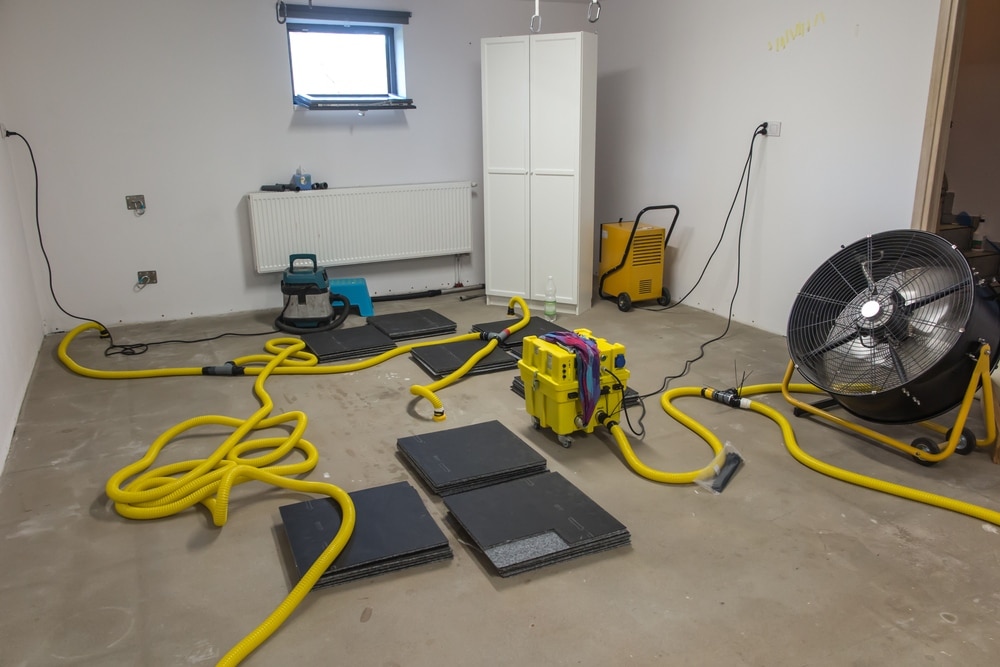
That’s why you should save Dry Force’s phone number, so you know who to call immediately after disaster strikes. We are experts in emergency cleanup and restoration offering:
- 24/7, 365-day-a-year emergency storm cleanup services
- 60-minute or less response times
- Direct billing to your insurance company
- Certified technicians who are reliable, drug-tested, and background-checked
- Damage assessment
- Removal of all unsalvageable materials from your property
- Reconstruction services
- Structural damage assessment
- Water damage assessment
- Emergency board-up
- Tree removal
- Wind damage repair
After Hurricane Beryl crashed through Texas, thousands of homeowners across Houston and the surrounding areas were left with thousands of dollars in damage and now power. If your home was struck by this tropical storm, don’t hesitate to contact the Dry Force team for emergency cleanup and assistance. We are available for 24/7 emergency service and know just what to do when disaster strikes.
Professional Water Classification to Avoid Health Risks
Water is one of the most common causes of residential damage in the United States. In a state like Texas, which is prone to flash flooding, it’s important to know how to respond to a flood to protect your health and safety. Three main category types of water damage can occur in your home or business:
| Cat. 1 – Sanitary Water | Cat. 2 – Contaminated Water | Cat. 3 – Black Water |
| Sanitary water or ‘clean water’ is water that originates from a sanitary source. This includes water supply lines, clean toilet bowls, and toilet tanks. Rainwater and melted snow are also considered sanitary water. | Contaminated water is often referred to as gray water. Sources include dirty toilet bowls and tanks, broken aquariums, and overflowing dishwashers or washing machines. | Black water is extremely dangerous to human health because it contains dangerous, toxic pollutants. Black water usually comes from seawater, waste line backflows, rising flood water, and raw sewage. It can also come from tropical storms or wind-driven rain. This water is deadly and needs to be handled by professionals immediately. |
Insurance Companies Dry Force Partners With
If you’re experiencing a flooding emergency, don’t fret. Dry Force Restoration Experts are in your area and will be there to help as soon as you need us. We understand that water-related emergencies are stressful, scary, and can be expensive. That’s why we partner with a long list of insurance providers to ensure you get top-of-the-line assistance when you need it most. Here are the insurance providers we partner with:
- Allstate
- American Modern
- Ameriprise Financial
- QBE (formerly Balboa)
- Encompass
- Farmer’s Insurance
- Foremost
- Mercury Insurance
- MetLife
- Nationwide
- StateFarm
- The Hartford
- Travelers
If you don’t see your provider here but are still in need of our services, get in touch with us so we can work out a way to assist you.
